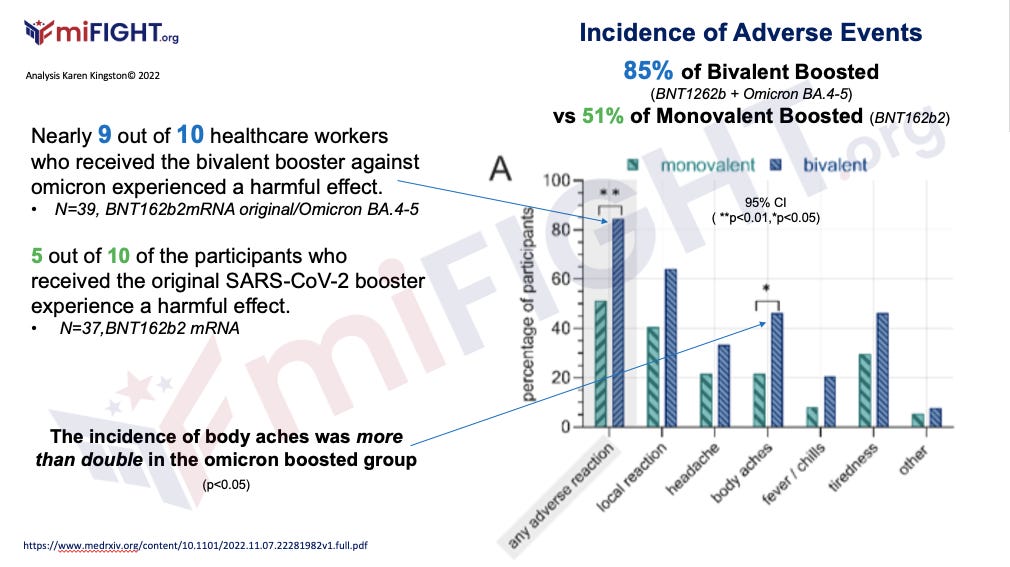The number one reason why employers mandate medical treatments, diagnostic tests, and/or healthcare exams is to decrease the rate of employee absenteeism due to being ill. In other words, employers want to prevent the risk of their employees calling in sick because it costs the employer money.
Beginning in 2021 and up until today, some employers (and universities) mandate vaccines and boosters to ‘allegedly’ protect their staff or students from becoming ill. Unfortunately for employers, especially hospitals and medical centers, a new pre-print study posted to medRxiv* demonstrates that 20% of employees will be unable to work after getting the bivalent Omicron booster and 10% of employees will be unable to work after receiving the standard COVID-19 (SARS-CoV-2) booster.
Let’s break down the data presented in the study of 76 healthcare workers entitled, Bivalent BNT162b2mRNA original/Omicron BA.4-5 Booster Vaccination: Adverse Reactions and Inability to Work Compared to the Monovalent COVID-19 Booster.
Nearly9 out of 10 healthcare workers (85%) who received the bivalent booster against Omicron experienced a harmful effect. AND 5 out of 10(51%) healthcare workers who received the original SARS-CoV-2 booster experience a harmful effect (p<0.01).

Specifically, the rates of body aches, headaches, fever, chills, tiredness, and local reactions were significantly higher in healthcare workers who received the bivalent Omicron vaccine. The incidence of
*Source: 20% of Employees Unable to Work After Receiving Boosters
